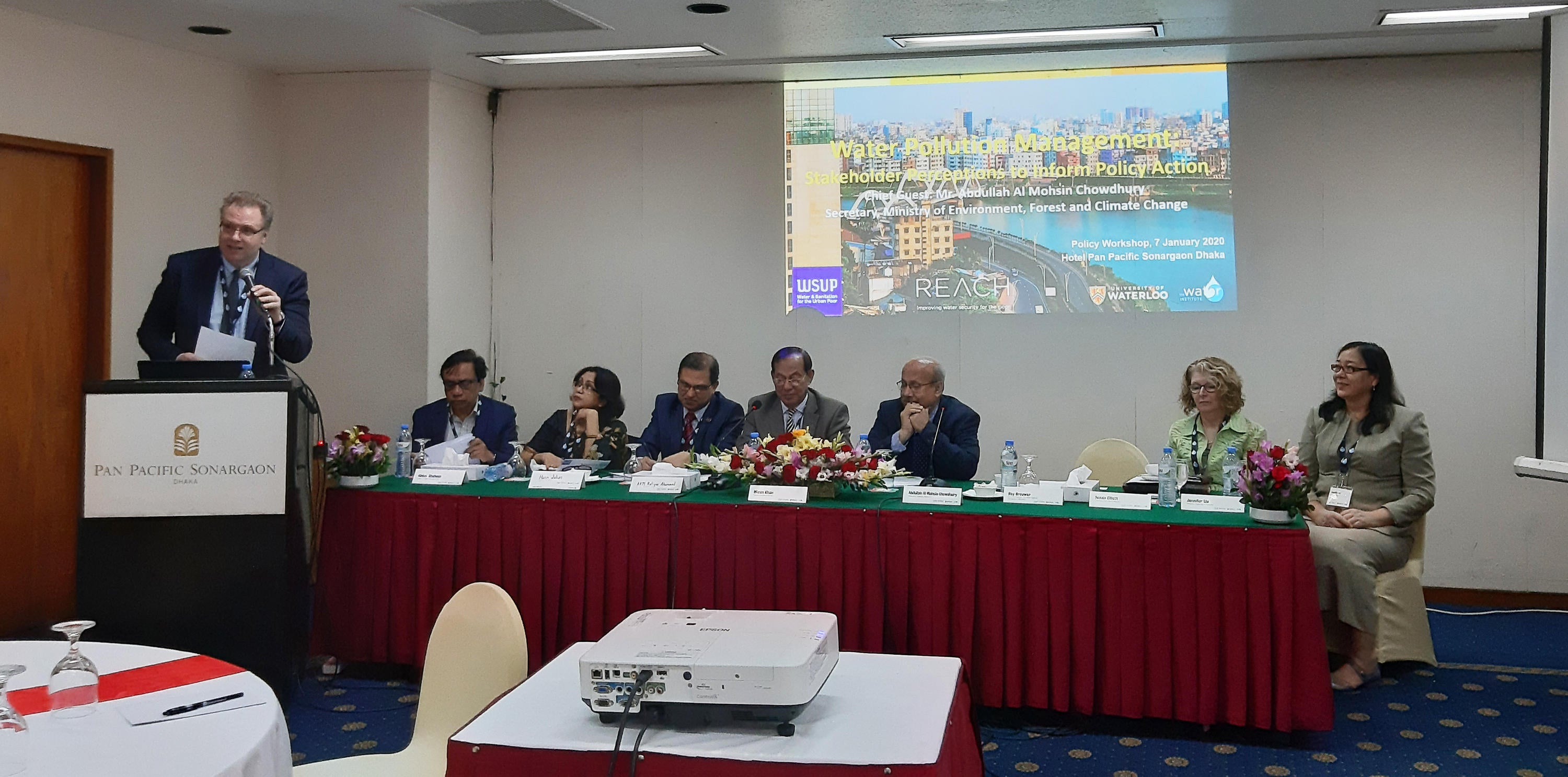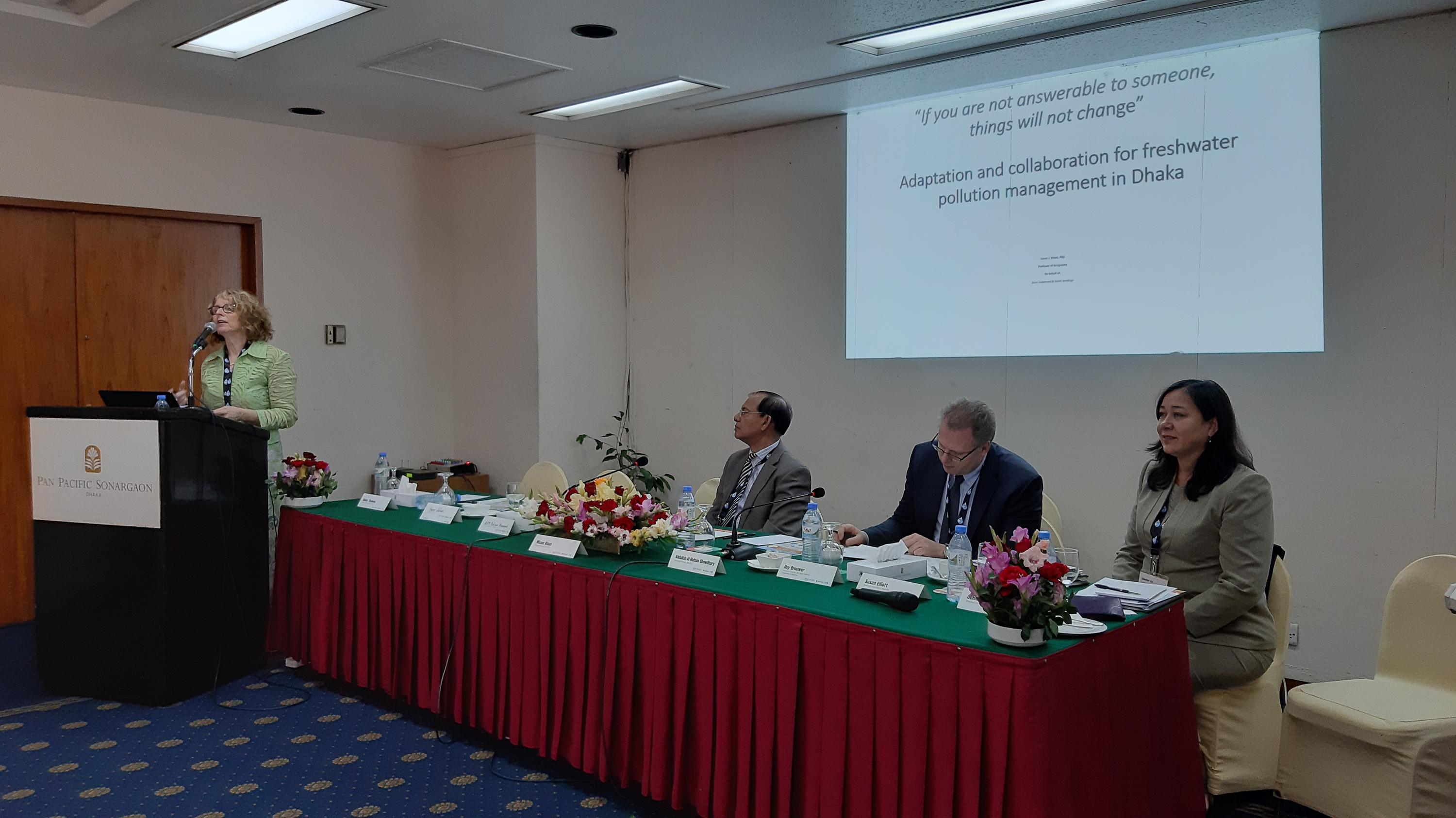
The results of a Water Institute led investigation into stakeholder perceptions of and attitudes towards more sustainable water pollution management in the mega-city Dhaka in Bangladesh were presented in a water policy workshop in the Pan Pacific Sonargaon Hotel in Dhaka on January 7. Water Institute members Derek Armitage (School of Environmental Resources and Sustainability), Susan Elliott (Geography and Environmental Management), Jennifer Liu (Anthropology), Roy Brouwer (Economics) and University of Waterloo graduate students Dilruba Sharmin and Danielle Lindamood advised the UK-based non-governmental organization Water and Sanitation for the Urban Poor (WSUP), who funded the research, about their key findings.
The research was carried out over a period of one and a half years in Dhaka in collaboration with local partners including WSUP Bangladesh, the International Center for Climate Change and Adaptation (ICCCAD) and Water Aid Bangladesh. Dhaka is a city with more than 20 million inhabitants facing rapid population and economic growth along and amongst heavily polluted rivers, streams, lakes and canals.
The workshop was opened by the Secretary of the Ministry of Environment, Forest and Climate Change (MoEFCC) and the Director General of the Department of Environment (DoE), and attended by high-level representatives from various governmental, non-governmental and academic research organizations in Bangladesh, such as the Dhaka Water Supply and Sewerage Authority (DWASA), the Water Resources Planning Organization (WARPO), the Bangladesh University of Engineering and Technology (BUET), and the International Center for Diarrheal Disease Research in Bangladesh (ICDDRB).
Water Institute Director Roy Brouwer introduced the objectives of the policy workshop and presented the main policy recommendations stemming from the research. These recommendations were summarized in a policy brief and an infographic developed by the Water Institute communications and knowledge mobilization officers Harriet Bigas and Julie Grant, and distributed to the approximately 45 participants at the workshop.
Susan Elliott then presented the results from 25 in-depth interviews with high-level policymakers and other stakeholders, highlighting some of the challenges various authorities at different levels of governance face in managing freshwater water pollution, in particular the implementation of existing rules and regulations and monitoring of the associated impacts.
Jennifer Liu presented the main findings from 21 in-depth interviews with different industry representatives, in particular the washing, dyeing and pharmaceutical industries and the many tanneries found in and around Dhaka city. The inclusion of industry perspectives in the investigation was considered new and innovative with respect to understanding perceptions of fresh water pollution management in the city.
Roy Brouwer closed the technical session presentations, highlighting the key results from a large-scale survey among 2000 households in Dhaka city, zooming in on the relationship between water quality, public health, and the costs of illness.
A lively discussion followed the presentations that continued over lunch. The next steps following the workshop include the writing of a short technical report synthesizing the main findings in more detail, taking into account the feedback the researchers received during the workshop, and publishing the results in the coming months in scientific journals as well as preliminary plans to present the work, in partnership with WSUP, at World Water Week in Stockholm (August 2020).


(L) Susan Elliott (R) Jennifer Liu presenting at the Policy Workshop in Dhaka, Bangladesh.